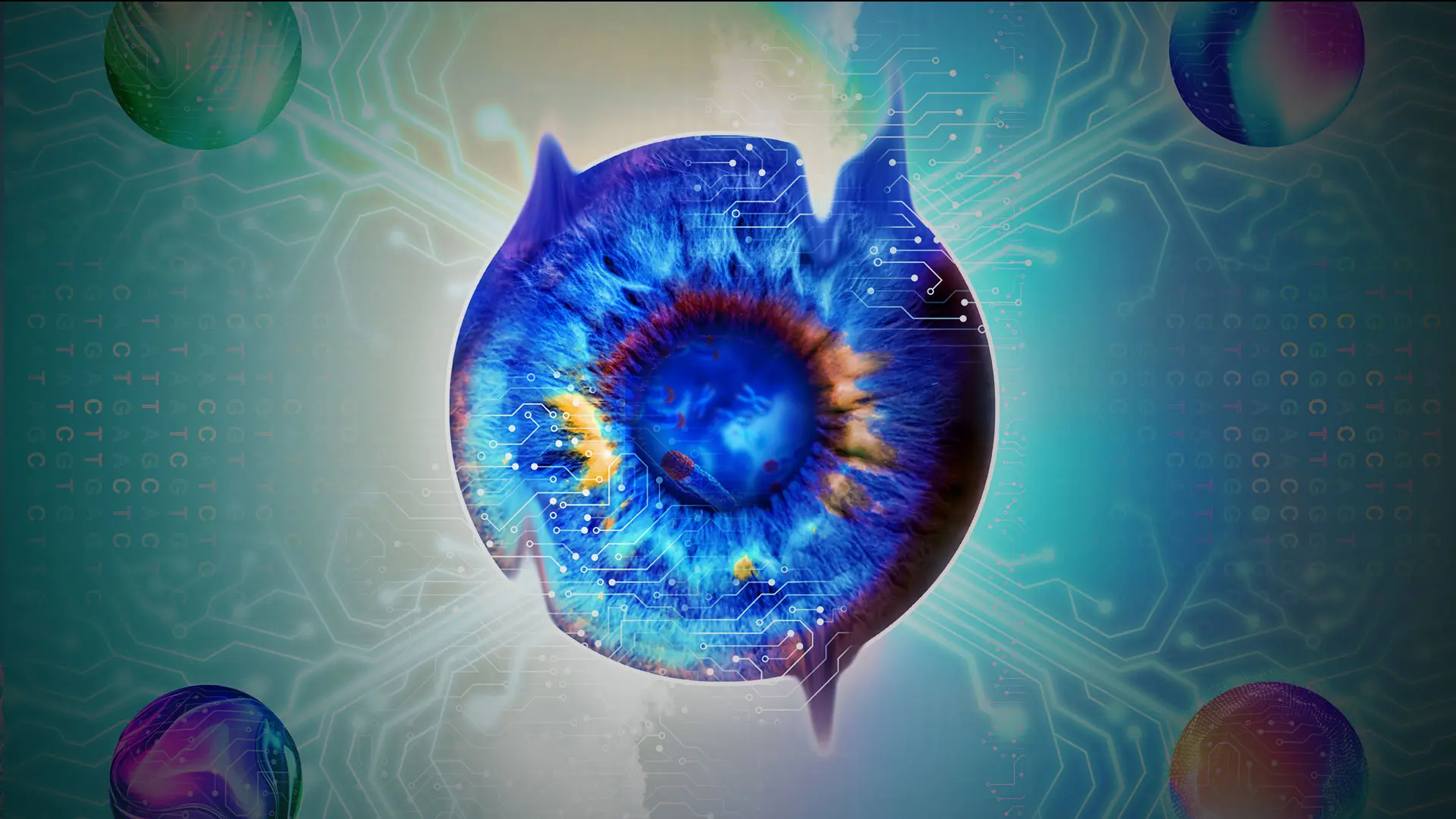Artificial intelligence (AI) and data science are about to reconfigure the field of ophthalmology, and New York Eye and Ear Infirmary of Mount Sinai (NYEE) is poised to help lead that revolution through the launch in July of the Center for Ophthalmic Artificial Intelligence and Human Health, the first of its kind in New York and one of the first in the country.
The Center is a partnership between NYEE and the Windreich Department of Artificial Intelligence and Human Health at the Icahn School of Medicine at Mount Sinai, which are committed to breakthroughs in AI-driven diagnostic and clinical care of eye disease that can benefit patients personally as well as on a much broader population scale.
“Ophthalmology is in a unique position among all medical specialties to drive AI through its advanced imaging capabilities, which provide a window on not just ocular diseases like glaucoma, diabetic retinopathy, and macular degeneration, but systemic conditions such as cardiovascular, neurologic, and renal vascular disease,” says James C. Tsai, MD, President of NYEE and inaugural Director of the Center. “Our new Center plans to take full advantage of that strength by pursuing innovative technologies that can lead to early detection and intervention of disease, thereby preventing vision loss and even heart attacks and stroke.”
The potential impact locally and globally of this new research, clinical, and educational endeavor is as boundless as AI itself. “Artificial intelligence could truly democratize access to health care by deploying in underprivileged areas advanced systems we’ve built at Mount Sinai to show which patients are at risk for disease from simple fundus photographs of their retinas taken in local doctors’ offices,” observes Thomas Fuchs, Dr.sc, Dean for Artificial Intelligence and Human Health at Icahn Mount Sinai. “This ability to get a better holistic view of the patient is not futuristic. It’s very real.”
Indeed, the infrastructure for such a system is currently being piloted at seven primary care sites within the Mount Sinai Health System. As part of NYEE’s teleretina program, they employ fundus cameras to provide non-mydriatic images of the back of the eye of patients during annual physical exams—images that are sent securely to NYEE retina specialists for reading. Once the system is transitioned to an advanced AI algorithm, real-time, on-site interpretation of these photos would be possible, potentially flagging a wide range of undiagnosed ocular and systemic problems. From this on-site feedback could flow immediate patient referrals to appropriate specialists.
Another innovative program in place at Mount Sinai Morningside and Mount Sinai West hospitals is tele-consult, which provides for rapid diagnosis and triage of patients with eye emergencies by linking ER physicians via sophisticated telemedicine platforms to off-site ophthalmologists from NYEE. Incorporating AI into the image interpretation could give tele-consults a bold new dimension in terms of even faster and more comprehensive diagnoses that far exceed the capabilities of the human eye.
Big data is the coin of the unfolding AI realm, and researchers under the Center’s umbrella will be particularly well off thanks to the trove of data embedded in images from NYEE patients, as well as from genotyping data residing at Mount Sinai. That information will be critical to the development and training of computer algorithms by data scientists, which in turn will provide the key to countless transformative applications in areas like detecting and monitoring disease, and patient response to treatment.
“We have fantastic databases of accumulated patient information that will enable us to learn how different trends and factors cause disease progression, and through that knowledge hopefully be able to intervene early in the disease process,” explains Alon Harris, PhD, Vice Chair of International Research and Academic Affairs at Icahn Mount Sinai, and Co-Director of the Center.
“We have fantastic databases of accumulated patient information that will enable us to learn how different trends and factors cause disease progression.”
- Alon Harris, PhD
That discovery is well underway. NYEE scientists, for example, have integrated AI and mathematical modeling to better understand the risk factors and pathophysiology of glaucoma. By analyzing new-onset visual field loss patterns from more than 2,500 affected eyes, a research team has gained insights into why certain populations are at greater risk for glaucomainduced blindness. Another team developed unique models for detecting age-related macular degeneration (AMD) at early, intermediate, and advanced stages using an ensemble of deep-learning screening methods and AMD-specific algorithms.
One exciting application waiting in the wings is the use of AI-driven ChatGPT to provide counseling to patients seeking answers to commonly asked questions about diseases like open-angle glaucoma. A carefully trained natural language processing program could provide the initial response, and if a patient felt more information was needed, they would be referred to a physician. Another intriguing application being eyed by scientists at NYEE: Using natural language processing to review the recorded voices of patients over the years from telemedicine emergency interactions, and from that archived information, develop an algorithm that could determine which patients need to be seen immediately by an ophthalmologist, and which can safely wait.
For Louis R. Pasquale, MD, Co-Director of the Center, the promise of applications like these underscores the value of the new Center in recruiting and training future leaders in technologically advanced eye care and research. “We believe that having a fellowship in AI will be important to attracting the next generation of leaders, particularly computer scientists,” he says, “and we’ll be ready to partner with them to undertake projects that merge their highly specialized skills with the robust data sets available to them at NYEE and Mount Sinai.”
Concludes Dr. Pasquale, who is Deputy Chair for Research, and Director of the Mount Sinai/New York Eye and Ear (NYEE) Eye and Vision Research Institute at Icahn Mount Sinai: “There’s so much data we’re now leaving on the table, and through the new Center for Ophthalmic Artificial Intelligence and Human Health, we’ll finally be able to leverage it to the enormous benefit of our patients and the physicians who provide their specialized care.”
